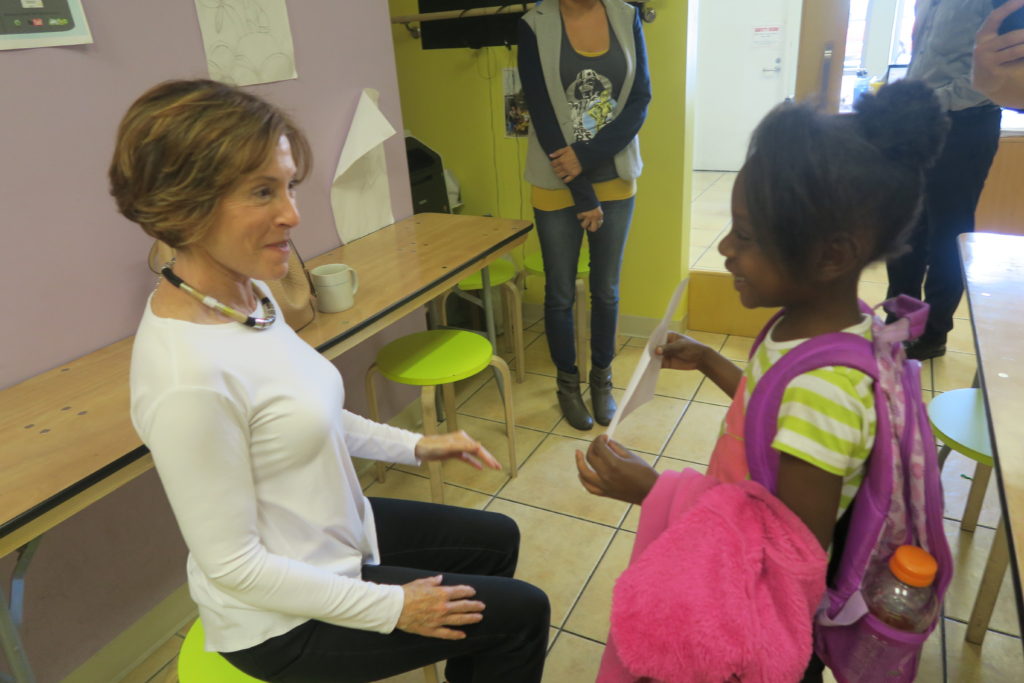Grant Spotlight: School on Wheels
January 10, 2017
In Los Angeles County alone, there are more than 60,000 children with insecure housing. One in 45 students attending an L.A. Unified school is homeless.
These staggering numbers have serious long-term implications. Children with unstable housing often are suffering from the trauma of losing a home and changing schools often, sometimes resulting in behavioral problems that interfere with learning. Limited access to food, medical care and school supplies also hinder success. Homeless children therefore are nine times more likely to repeat a grade and four times more likely to drop out of school—and more likely to perpetuate the cycle with their own children as adults.
To give them the tools they need to break the cycle of poverty, School on Wheels matches homeless children with tutors. Since 1993, the organization has worked with thousands of students to give them the support they need with a consistent, caring adult presence.
When The Eisner Foundation transitioned to solely funding intergenerational programs in 2015, we wanted to continue our partnership with this incredibly effective organization. So we worked with School on Wheels to further develop their recruitment of senior volunteers.
“We have always used senior tutors in our work but never really targeted them as a group,” said Catherine Meek, Executive Director of School on Wheels. Knowing that volunteer retention rates were significantly higher for older volunteers and that student outcomes are closely tied to consistency, she crafted a new strategy to increase the number of senior volunteers.
By targeting senior centers and working with other key organizations, School on Wheels increased the number of students matched with senior volunteers by 20%.
“The Eisner grant really focused us on making a targeted recruitment effort for seniors,” Meek said. “I’m not sure we would have been as successful had it not been for the grant.”
This growth has benefited the seniors, too. Loneliness and isolation affects 40% of American adults, and is tied to poorer health and accelerated cognitive decline. But seniors engaged in the community see the opposite effect.
“The program has enriched my life in countless ways,” said Eileen McAndrews, a volunteer since 2000. “I have a new appreciation for the people in my life.”
For Cathie Alter, the opportunity to tutor online allowed her to interact with students while caring for her husband. This provided an added bonus for the children—her cat, Spyder, joins the sessions.
“So far, the most rewarding experience was when I went to the Skid Row Learning Center to meet my student in person for the first time,” she said. “When she saw me, she ran and hugged me. One of her first questions was ‘Did you bring Spyder?’ It doesn’t get much better than that.”
These connections also give the students more than academic assistance. “They don’t interact with a lot of seniors,” Meek said. “They’re used to being around peers, teachers who tend to be younger, and because they are homeless, they’re not around grandparents. We provide them the chance to interact with that generation. They’re a positive role model.”
Meek looks forward to continuing this success to aid even more homeless students. “Seniors are some of our best volunteers,” she said. “Moving forward, we’re making a more targeted effort to recruit them.”
